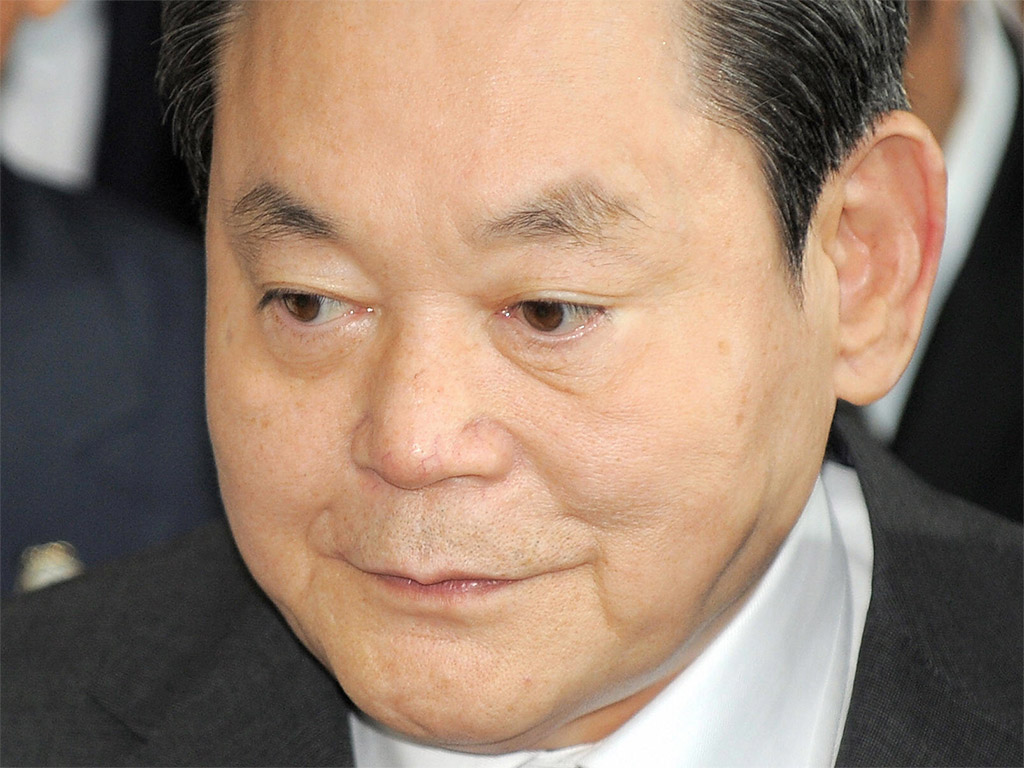Samsung Chairman’s heart attack puts company at crossroads
The sudden illness of Samsung Chairman Lee Kun-Hee has sparked speculation about who will succeed him, and what direction the electronics giant will take

Samsung Chairman Lee Kun-Hee's heart attack has left many wondering who will be next to lead the company
The news that Samsung Electronics’ Chairman Lee Kun-Hee has been struck by a heart attack has led to considerable uncertainty at the South Korean technology empire. After suffering the heart attack on Sunday evening, 72-year-old Lee underwent emergency surgery. He remains unconscious, but has been described as being in a stable condition.
What happens next for the technology giant is unclear. Lee was responsible for transforming the company into one of the leading electronics manufacturers in the world over the last two decades. Assuming control of the firm in 1987, Lee focused heavily on transforming the company away from merely imitating other technology firms and into one of the leading television, memory chip and smartphone makers in the world.
It is thought that Lee will be succeeded by one of his three children. His son, 45-year-old Lee Jae-Young is currently Vice-Chairman of Samsung, while his youngest daughter, Lee Seo-Hyun, is President of Samsung Everland’s fashion division. Elder daughter Lee Boo-Jin currently heads up high-end hotel group Hotel Shilla.
It is thought that Lee will be succeeded by one of his three children
It is not the first time Lee has fallen ill. In 2000, the Samsung Chairman was treated for lung cancer, but managed to make a full recovery. He has also suffered from pneumonia. Over his career he has amassed a fortune of $12.9bn, making him South Korea’s richest person. Plans for his succession have been underway for a number of years as a result of his poor health, but it will certainly be a blow for the firm once he is replaced.
However, while many draw comparisons between Lee and Steve Jobs, former leader of Samsung’s biggest rival Apple, some don’t believe that his departure will affect the company in the same way that Jobs’ 2011 did to the US firm. Telecoms industry analyst Chetan Sharma told The New York Times that Lee’s influence at the firm has not been as significant. “Steve was the driving force behind all the products down to the last detail. [At Samsung] there are many senior executives who can step in and the world won’t notice. While Mr Lee built an empire in Samsung, he isn’t identified with the brand or the products as Mr Jobs was with Apple.”
Samsung is currently embroiled in a number of patent disputes with Apple, and was in 2012 ordered to pay almost $1bn to its US rival. However, the relationship between the two firms remains confused, as Samsung became Apple’s primary supplier of displays for the iPad during the first quarter of 2014. Settling these disputes and ensuring that Samsung remains at the forefront of consumer electronics will undoubtedly present Lee’s eventual successor with many decisions.













